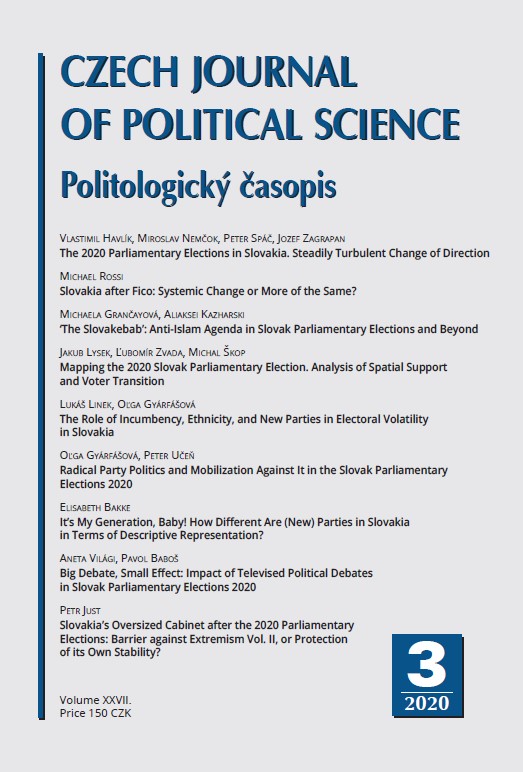The Role of Incumbency, Ethnicity, and New Parties in Electoral Volatility in Slovakia
The Role of Incumbency, Ethnicity, and New Parties in Electoral Volatility in Slovakia
Author(s): Lukáš Linek, Oľga GyárfášováSubject(s): Politics / Political Sciences, Social Sciences
Published by: Masarykova univerzita nakladatelství
Keywords: electoral volatility; party switching; Slovak elections; incumbency; Hungarian minority
Summary/Abstract: This paper analyzes electoral volatility in the 2020 Slovak elections at the level of individual voters using exit poll surveys. The availability of exit polls from the previous elections of 2012 and 2016 allows us to put the 2020 election in context and analyze the patterns (and deviances from them) observed across the three elections. Furthermore, the paper summarizes the aggregate volatility since 1992, demonstrating a high level of net volatility with peaks of over 30 percent. As for the individual level, the analysis concentrates on three important issues in volatility research: (1) vote losses of government parties and the incumbent effect; (2) the role of new parties in mobilization of previous non-voters and first-time voters; (3) since Slovakia is a country with a significant Hungarian minority, special attention is given to vote switching by Hungarian voters and more general patterns of ethnic voting.
Journal: Politologický časopis - Czech Journal of Political Science
- Issue Year: XXVII/2020
- Issue No: 3
- Page Range: 303-322
- Page Count: 19
- Language: English

